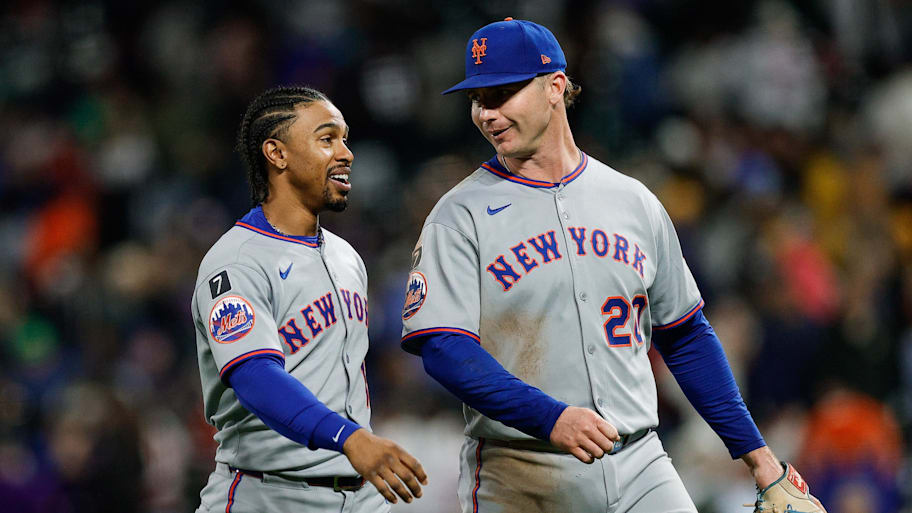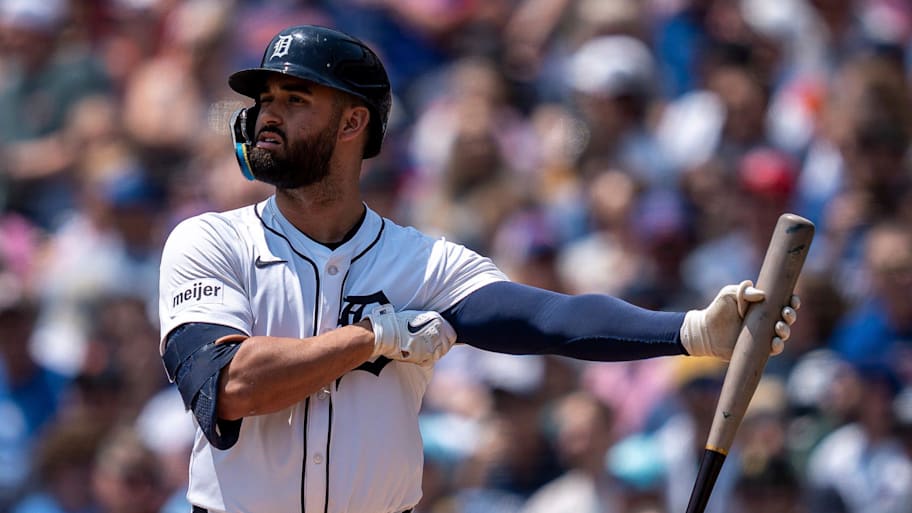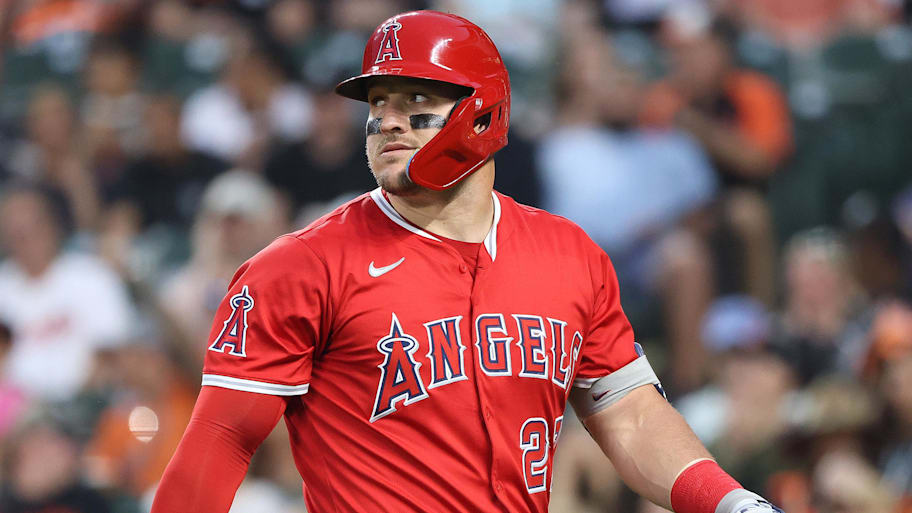
The 2025 MLB All-Star Game is less than a month away, with Atlanta getting ready to host the 95th Midsummer Classic on July 15. As has been the case since 1970, fans are tasked with voting for the starting batting lineups of the American and National League teams. This can lead to some highly entertaining and borderline upsetting choices, and this year seems like it’ll be no different.
MLB released an update on the voting totals on Monday, with some expected results—reigning MVPs Aaron Judge and Shohei Ohtani lead their respective leagues in votes—and others meriting analysis.
Phase 1 voting will continue through June 26, after which the top two vote-getters for each position (or top six for outfielders) will progress to the final round of voting, which will take place from June 30 to July 2. Isn’t it nice to participate in an election that has far lower stakes than our political ones?
Voting leaders through the first MLB All Star ballot update! pic.twitter.com/TJH7MOU5MK
— Talkin’ Baseball (@TalkinBaseball_) June 16, 2025
1. The Braves are unlikely to have any starters in their hometown All-Star Game.
Atlanta’s 2025 campaign has been a major disappointment. The team currently sports a 31–39 record, putting the club 13 games behind the New York Mets in the NL East and 7.5 games behind the Padres for the last NL wild-card spot.
Still, with the Braves set to host the All-Star Game for the first time since 2000, one would think the hometown fans would be supporting their players on the ballot, especially with first baseman Matt Olson, designated hitter Marcell Ozuna and catchers Sean Murphy and rookie Drake Baldwin doing well enough to merit consideration. Instead, Atlantans seem to be taking this opportunity to express their displeasure with the team’s performance.
None of the Braves mentioned above are in the top five of votes at their respective position. Ronald Acuña Jr. is in sixth place among outfielders, putting him on pace to qualify for the next round of voting. But he has only played 21 games after not debuting until May 23 due to the torn ACL he suffered last year and would have an uphill climb to start in a stacked NL outfielder crop.
Though the All-Star Game gives the hometown crowd a chance to see the players they root for compete against the best the league has to offer, it seems Braves fans would rather see just about anyone else at the Midsummer Classic. (They could make the difference in the race between beloved former Brave Freddie Freeman and Mets nemesis Pete Alonso in the NL first base battle.)
2. Dodgers fans are this year’s overzealous ballot box stuffers.
Every season, an especially energized fan base emerges to dominate the early rounds of fan voting. The Kansas City Royals, Toronto Blue Jays and, ironically, the Braves come to mind as recent beneficiaries of this phenomenon. This year, it’s the Los Angeles Dodgers.
It’s not exactly shocking that the reigning World Series champions in the country’s second-biggest market are dominating fan voting, especially since they have many worthy candidates. But Dodgers fans are really showing their bias by voting for Max Muncy (.239 batting average, nine home runs) enough to put him in the top two of NL third basemen and Teoscar Hernández (.299 OBP, 24th in NL outfielder WAR) in third place in the NL outfield race. The latter will be especially egregious if Hernández qualifies over Washington’s James Wood or San Diego’s Fernando Tatis Jr.—though blocking out Tatis is probably part of many Dodgers fans’ motivation in voting for their own guys.
Every Dodger on the ballot is on pace to qualify for Phase 2 voting except outfielder Andy Pages, who’s one slot away from qualification while also ranking ahead of Tatis and Wood, and outfielder Michael Conforto, who’s slashing .173/.312/.286 and just spent two years playing better for the rival Giants. All other seven Dodgers on the fan ballot will likely be in the next round of voting, with three (Ohtani, Freeman, Will Smith) leading their positions.
3. The Tigers are officially relevant again.

Detroit hasn’t quite demonstrated the voting power of Los Angeles, but the first-place Tigers nevertheless have five players either in position to qualify for Phase 2 of voting or one spot out of the running. That’s the most in the American League, a status fitting for the team that’s fulfilled the promise of last year’s surprising playoff run by having the best record in the AL.
Gleyber Torres is the top vote-getter among second basemen, benefiting from a weak field of contenders. Riley Greene has the second-most votes among outfielders and Javier Báez ranks fifth amid his resurgent season while Kerry Carpenter ranks seventh, meaning Detroit could end up with three outfielders among the six that’ll qualify for Phase 2. Rookie catcher Dillon Dingler wouldn’t have a prayer of beating out MLB co-home run leader Cal Raleigh for a starting gig, but he could feasibly overtake Toronto’s Alejandro Kirk for a spot in the next round.
Miguel Cabrera is the last Tiger to be elected an All-Star starter, back in 2015. You can forgive Tigers fans if they disengaged for much of the last decade during a postseason drought that extended back to ‘14. But the franchise’s sudden maturation into a powerhouse has reinvigorated a fan base hungry for Detroit’s first World Series title since 1984.
4. Francisco Lindor is going to make his overdue return.
Due to Lindor making a habit of starting seasons slow amid an impressive modern era of shortstops, the Mets’ $341 million man has yet to be invited to an All-Star Game this decade after making four consecutive appearances for Cleveland between 2016–19.
He’ll finally join the five-timers club next month. Lindor has already garnered over a million votes, putting him more than 400,000 votes ahead of second-place NL shortstop Mookie Betts. There’s once again an impressive set of contenders including Betts, Elly De La Cruz and Trea Turner, who has started for the NL two of the last three years. But the two-time defending Silver Slugger winner at the position is a lock to qualify for Phase 2 and would assuredly be named as a reserve even if he doesn’t win the fan vote. Lindor needs only to avoid injury to make the trip to Truist Park.
5. The allure of Mike Trout remains strong.

Trout, a three-time MVP and four-time MVP runner-up, has more All-Star Game appearances (11) than any active player. He’s a widely admired figure for his utter dominance in the 2010s, his refusal to request a trade away from the Los Angeles Angels despite having every reason to do so and an aw-shucks demeanor that’s endeared him to fans yet has likely limited his earnings potential off the field.
The 33-year-old has also unfortunately been plagued by injuries over the last five seasons, only playing in at least 100 games once over that span, and it appears those ailments are now affecting him even when he is on the field. Through 44 games, he’s slashing .220/.306/.453 with 11 homers and two stolen bases. His 107 wRC+ indicates he’s 7% better than the average MLB hitter—not bad, but by far the worst mark of his career, and not an All-Star worthy output.
Nevertheless, Trout ranks third in AL outfielder voting, with a near 100,000-vote cushion between him and seventh place. We have no idea how much longer we’ll be able to see Trout on the diamond. Angels manager Ron Washington recently indicated the face of the franchise may not play in the outfield for the rest of the season to protect the balky knee that cost him most of last season and already sidelined him for a month this year. Even putting that aside, it’s hardly surprising that fans in Anaheim and beyond want to see the living legend in Atlanta. If there’s one player who deserves a legacy spot in the next round of voting, it’s the future first-ballot Hall of Famer.
6. The Rockies-White Sox troll vote movement is dead.
The Colorado Rockies, despite an active two-game winning “streak,” are 15–57 and still on pace to lose the most games in MLB history—a record held by the 2024 Chicago White Sox. Neither the Rockies nor the White Sox, who again have the AL’s worst record (23–49), have many (if any) players worthy of starting the Midsummer Classic. But that didn’t stop a viral movement emerging to vote for starting ASG lineups composed entirely of players from the majors’ two worst teams.
Monday’s voting update revealed that it was likely just an internet ruse all along. Catcher Hunter Goodman—the most deserving candidate between the two teams—was the only Rockie to land in the top 10 of votes for his position, placing fifth. The White Sox fared slightly better, with DH Mike Tauchman ranking third—partially thanks to Rafael Devers switching leagues on the eve of the vote update—and second baseman Lenyn Sosa squeaking in at 10th.
While it would’ve been slightly amusing to see a couple more Rockies and White Sox pop up in Monday’s update, it’s probably for the best so that the joke didn’t gain any momentum to potentially displace a deserving Phase 2 candidate.
This article was originally published on www.si.com as Six Takeaways From the First 2025 MLB All-Star Game Voting Update.







